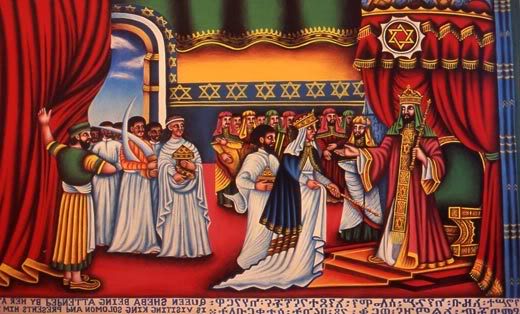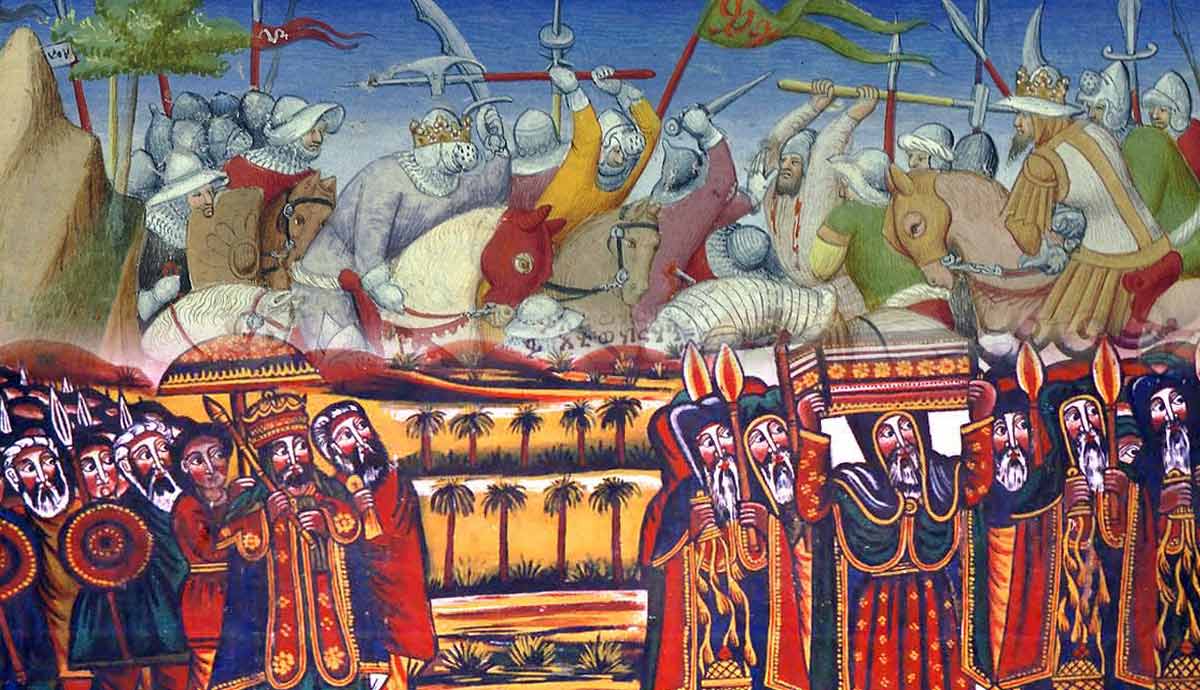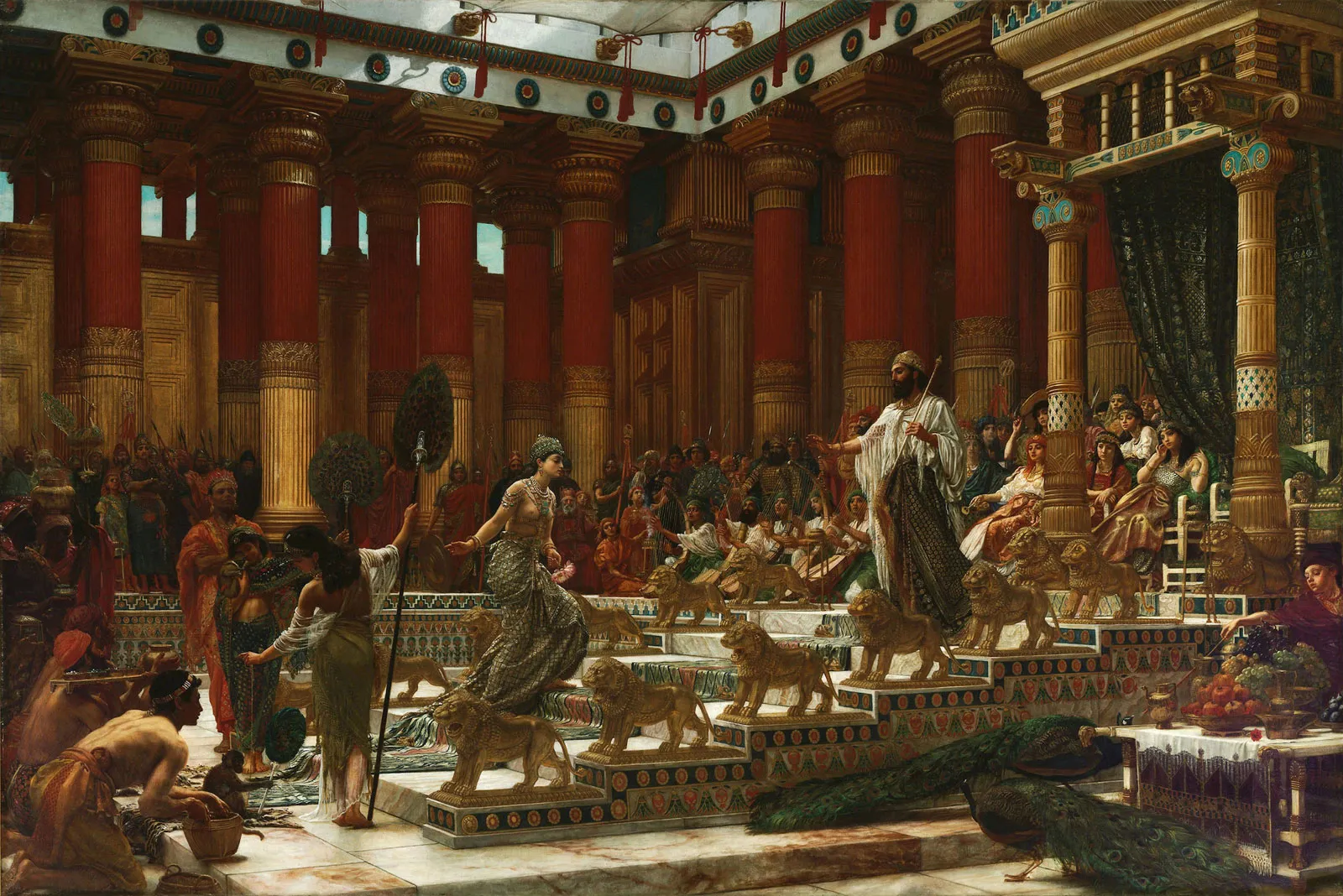The medieval Kingdom of Abyssinia was founded by the Solomon dynasty c. 1270 CE. Their first ruler being Yekuno-Amlak (r. 1270-1285 CE), a local leader at Amhara. It is likely that the Solomon saw the kings of Zagwe as usurpers, an interruption to the dynasty that had ruled Axum, and they gathered the support of anti-Zagwe factions which had presented a continuous opposition throughout the 12th and 13th centuries CE. The Zagwe dynasty contributed to its own downfall by always having disputes over who had the right of succession – even the great Lalibela had been briefly deposed by his own nephew.


KING ZARA YAKOB: ‘I AM THE SON OF DAVID, THE SON OF SOLOMON, THE SON OF MENELIK.’
Yekuno-Amlak and his successors, according to both oral and written medieval traditions (which were mostly compiled in the 13th or 14th century CE like the Kebra Negast but possibly using older sources), claimed direct descent from the biblical King Solomon of Jerusalem and Makeda, the Queen of Sheba (equated with Ethiopia in this tradition but more likely to be southern Arabia), hence their dynastic name of ‘Solomonid’. The story goes that the Queen of Sheba visited King Solomon in Jerusalem after hearing of his great wisdom. The royal couple enjoyed an amorous encounter, the fruit of which was a son called Menelik. When reaching adulthood, Menelik also went to Jerusalem and, thanks to one of his travelling companions, he came back to Axum with quite a prize, the Ark of the Covenant.
The claim may have been dubious – indeed, there is, in any case, no direct evidence of a historical King Solomon ruling Israel in the 10th century BCE – but it does seem that the Ethiopian kings themselves believed their heritage, or at least publicly claimed to. King Zara Yakob (r. 1434-1468 CE) was asked about his ancestry at his coronation and boldly stated: “I am the son of David, the son of Solomon, the son of Menelik” (quoted in Curtin, 141).
The claim may have been fabricated and was certainly perpetuated in order to give legitimacy to the Solomonid line. Many Solomonid kings held their coronation at Axum because of the Ark of the Covenant connection there. It is also interesting to note that in Ethiopian literature on what constitutes good kingship two things are held as vital – descent from a person, like Solomon, who had made a holy covenant with God and possession of the sacred Ark of the Covenant. Ethiopian kings were fortunate to claim both and, by association, the people of Ethiopia were able to also claim they were God’s chosen people, a point reinforced by the Christian kingdom’s isolation in East Africa, surrounded as it was by states which were predominantly Muslim, Jewish, or practiced traditional African beliefs. For the Ethiopian people, they were the ‘second Israel’. That is not to say traditional African religion was wholly eradicated in Abyssinia, even the king performed a ritual sacrifice of a buffalo and a lion when he was crowned.
The claim may have been fabricated and was certainly perpetuated in order to give legitimacy to the Solomonid line. Many Solomonid kings held their coronation at Axum because of the Ark of the Covenant connection there. It is also interesting to note that in Ethiopian literature on what constitutes good kingship two things are held as vital – descent from a person, like Solomon, who had made a holy covenant with God and possession of the sacred Ark of the Covenant. Ethiopian kings were fortunate to claim both and, by association, the people of Ethiopia were able to also claim they were God’s chosen people, a point reinforced by the Christian kingdom’s isolation in East Africa, surrounded as it was by states which were predominantly Muslim, Jewish, or practiced traditional African beliefs. For the Ethiopian people, they were the ‘second Israel’. That is not to say traditional African religion was wholly eradicated in Abyssinia, even the king performed a ritual sacrifice of a buffalo and a lion when he was crowned.

The Solomonids had their capital at Amhara, near Ethiopia’s present-day capital, Addis Ababa. Although efforts to control coastal trade had some success, land trade routes and those along the Blue Nile proved more profitable for the Ethiopians. Territory was also disputed between the Solomonids and Muslim traders of the Red Sea who established such small states as Harar, Dawaro, Bale, and Adal. At the same time, the Solomonids expanded their kingdom in as many directions as possible to eventually carve out an empire which spanned from Shoa in the south to the lands north of Lake Tana at the other end of the compass.
